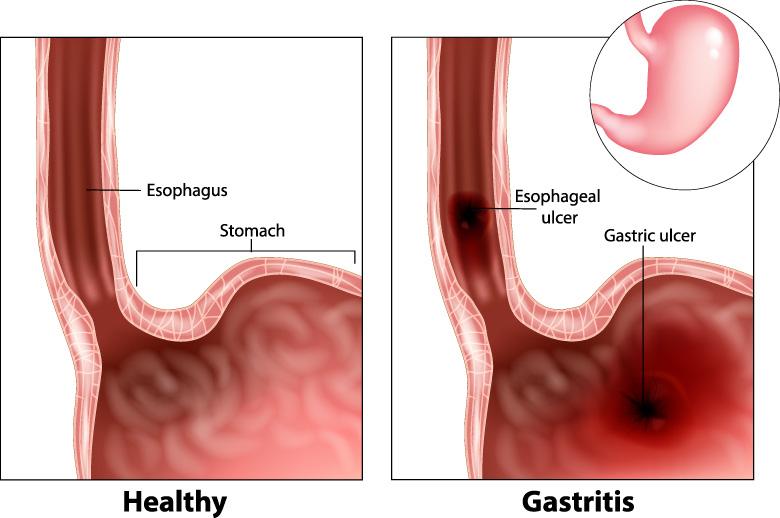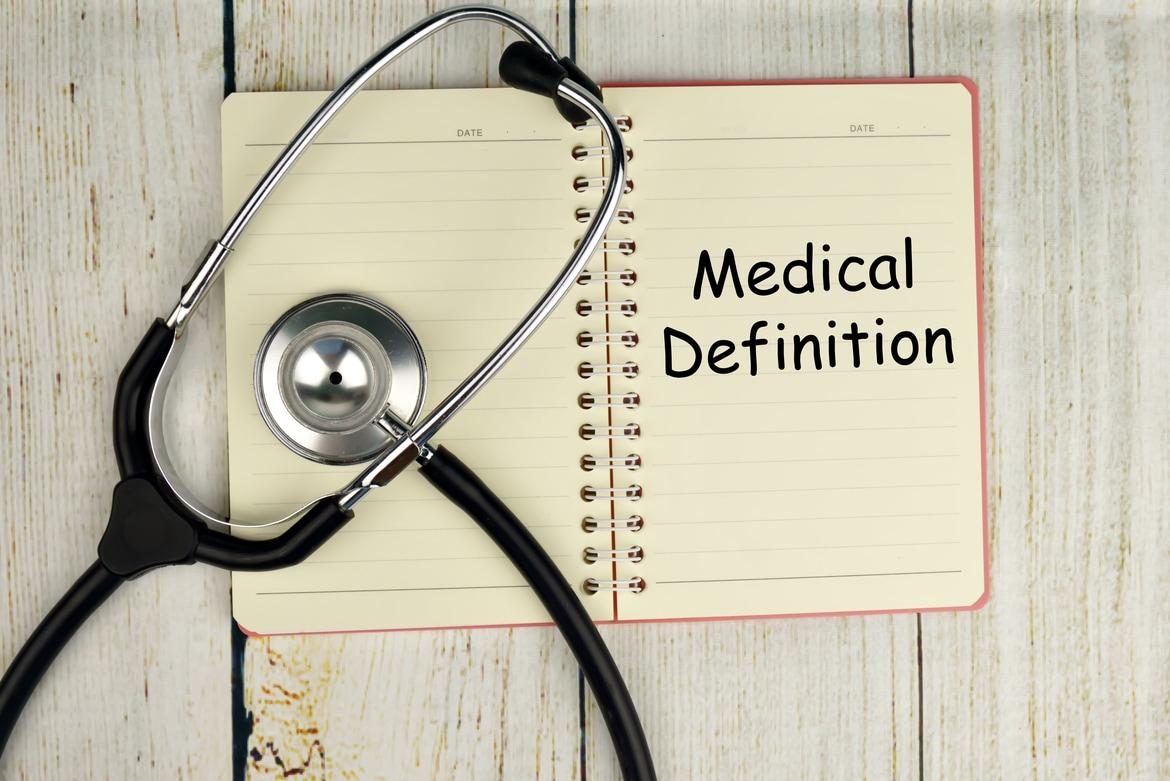-
-
Featured Care Areas

Gastritis
What is gastritis?
Gastritis is a swelling of the stomach lining. When the lining of the stomach is inflamed, it may lead to symptoms such as stomach pain, heartburn, nausea and vomiting.
Types of gastritis
There are 4 types of gastritis:
- Acute gastritis involves a sudden inflammation of the stomach lining and usually lasts for a short period of time. The condition is usually caused by nonsteroidal anti-inflammatory drugs, excessive alcohol consumption, toxins, surgery, trauma, burns or severe infection.
- Chronic gastritis involves stomach lining irritation or inflammation for a long period of time. Often caused by Helicobacter pylori bacterial infection, chronic gastritis symptoms appear slowly over time.
- Erosive gastritis is less common and typically does not cause too much inflammation. However, erosive gastritis can result in bleeding and ulcers in the stomach lining.
- Non-erosive gastritis refers to inflammation of the stomach lining without any ulcers, breaks or bleeding.
What are the symptoms of gastritis?
In most cases, gastritis does not display any symptoms. However, the most common symptoms of gastritis include:
- Blood in vomit
- Black stools due to bleeding
- Burning feeling in the upper abdomen (belly)
- Pain in the upper abdomen
- Nausea and indigestion
- Loss of appetite
- Weight loss
- Vomiting
- Hiccups
What causes gastritis?
Gastritis may be caused by:
- Excessive alcohol consumption
- Post-surgery, burns or traumatic injury
- Infection caused by helicobacter pylori, a bacteria that weakens the protective lining of the stomach and causes acidic digestive juices to come into contact with the stomach walls
- Long-term use of non-steroidal anti-inflammatory drugs (NSAIDs), such as aspirin and ibuprofen
- Stress and chronic vomiting, such as in bulimia cases
What are the risk factors for gastritis?
The following factors increase your risk of developing gastritis:
- Bacterial infection – Infection caused by Helicobacter pylori (H. pylori), a type of bacteria that enters the body and lives in the digestive system, can develop into gastritis.
- Excessive alcohol consumption – Excessive drinking of alcohol can lead to irritation and erosion of the stomach lining, making the stomach secrete more digestive juices. This can lead to acute gastritis.
- Frequent use of pain relievers – Regularly taking common pain relievers like aspirin, ibuprofen and naproxen may reduce the substance that helps preserve the stomach lining. This can lead to acute or chronic gastritis.
- Stress – Extreme stress caused by injury, major surgery or severe infections can lead to acute gastritis.
- Other health conditions – If you have autoimmune disorders such as Hashimoto's disease and type 1 diabetes, you have higher risk of developing gastritis. Gastritis is also more likely to happen to people with medical conditions such as Crohn's disease, HIV/AIDS, and parasitic infections.
- Age – As the lining of the stomach tends to thin with age, older adults have a higher risk of developing gastritis. Older adults are also more likely to develop other factors that lead to gastritis such as H. pylori infection and autoimmune disorders.
What are the complications and related diseases of gastritis?
Left untreated, gastritis can lead to the following health problems:
Anaemia
Some cases of gastritis can lead to gastrointestinal bleeding. This may cause anaemia, a condition wherein the total amount of red blood cells decreases. Anaemia can cause shortness of breath, weakness, and dizziness.
Pernicious anaemia
Gastritis caused by autoimmune problems may have an adverse effect on the body’s absorption of vitamin B12. Insufficient vitamin B12 can lead to pernicious anaemia, which can cause you to feel weak and experience numbness in your hands and feet.
Peritonitis
When gastritis worsens the sores in your stomach or ulcer, stomach contents may spill into the abdomen. This may cause bacteria to spread and lead to peritonitis, an inflammation of the membrane lining the inner abdominal wall. Peritonitis may lead to a life-threatening inflammation called sepsis.
Stomach cancer
Gastritis caused by H. pylori and autoimmune problems can lead to growths in the stomach lining, which may increase the risk of developing stomach cancer.
How to prevent gastritis?
You can prevent gastritis by observing proper hygiene practices and maintaining a healthy lifestyle. In general, you should:
- Avoid acidic and fatty foods.
- Avoid taking non-steroidal anti-inflammatory drugs.
- Have smaller meals instead of heavy meals throughout the day.
- Observe proper handwashing to avoid H. pylori bacterial infection.
- Eat foods that have been properly cooked to avoid H. pylori bacterial infection.
- Learn to manage your stress properly.
- Lessen alcohol consumption.
- Lessen caffeine intake.
This page has been reviewed by our medical content reviewers.
Need help?
For enquiries, please call
+65 6377 3737
For appointment bookings, please WhatsApp
+65 8111 3777






